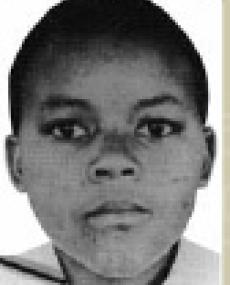
MK commander, murdered by South African Security Police members
Phila Portia Ndwandwe (also known as Zandile or Zandi) became part of the Natal Machinery of uMkhonto weSizwe (MK) in 1985 under the leadership of Muzi Ngwenya (Thami Zulu or “TZ”) operating from Swaziland. She was in the unit headed by Ayanda Dlodlo that was responsible for the infiltration of African National Congress (ANC) cadres into Natal. In October 1988, she was abducted by two former MK militants turned informants who requested a meeting with Ndwandwe at the George Hotel in Mazini, Swaziland. Unaware they had become police informers, she attended the meeting with them.The informants entered Swaziland illegally through false documents which was all part of an elaborate plan by the Port Natal Security Branch to abduct Ndwandwe and turn her into an informant as well. The police monitored their meeting and captured her after the two informers turned her over to them.
This information came to light during the Truth and Reconciliation Commission’s (TRC) Amnesty Hearings, which received seven amnesty applications between 1996 and 1997, from Hendrik Johannes Petrus Botha, Salmon Johannes Gerhardus Du Preez, Johannes Albertus Steyn, Andy Taylor, Roelof Brand Visagie, Jacobus Adriaan Vorster and Lawrence Gerald Wasserman. All members of the Port Natal Security Branch responsible for Ndwandwe’s abduction and murder in Swaziland where she was a commander of the MK unit based there. However, only five members testified at the amnesty hearings which took place during the 9 to the 19 November 1998 due to their direct involvement in her abduction and murder. They testified that after Ndwandwe’s abduction they took her back to South Africa where she was interrogated and left naked for 10 days before she was killed execution style at the Elandskop farm in KwaZulu-Natal, which had been used as security branch safe-house. The members unanimously testified that she had never been tortured and was only struck with a baton on her head before she was shot. This was done as they came to the realization that she would not turn informer. They prepared a shallow grave for her some 80m from her family’s house in Elandskop, disposed of her clothes and covered her with lime, plastic bags and refuse in order to create the impression her grave was a dumping site should an investigation take place.
However, a blue plastic bag was found around the waist of her remains. One of her perpetrators recalled that she had worn it as a panty to maintain her female dignity. Through Ndwandwe’s perpetrators’ testimonies, the TRC was able to successfully exhume her remains and give them back to her family where she would finally have a proper burial after missing for about 10 years. The disclosure of the perpetrators’ unjust acts against Ndwandwe resulted in them receiving amnesty. The two informers were not expected to testify at the TRC nor have their identities exposed as the Commission decided that they were not directly linked to Ndwandwe’s murder. This decision, however, was not welcomed by her family members as they felt that the informers were responsible for her death.
Her funeral was highly publicized as it was broadcast on television and many high profile people such as the then President Nelson Mandela attended the funeral. Ndwandwe was the only female guerrilla whose body was exhumed not only indicating her importance in the armed struggle but she heralded as one of the most important female figures in the history of South Africa. Her funeral provided an opportunity for her nine-year-old son, Thabang, to meet his grandparents for the first time. He was only two months old at the time of her abduction and his father, Phila’s ex-lover and a former MK militant, Bheki Mabuza, had kept him in his care. Mabuza also shared his views on Ndwandwe and remembers her fondly as a tomboy with a good sense of humour. Thabang received Ndwandwe’s medal of bravery which the president awarded for the sacrifices she made during the armed struggle and her involvement in the liberation movement.